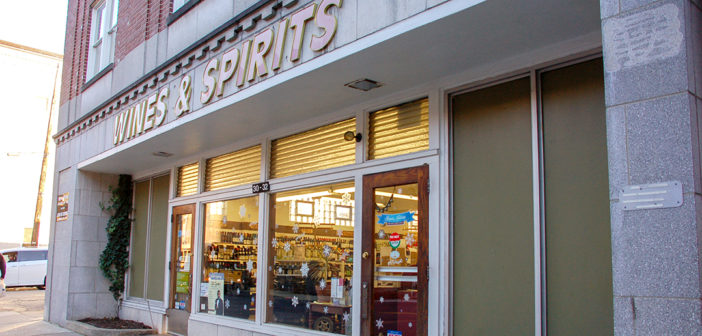Pennsylvania has started changing its liquor laws to modernize the sale of alcohol in the state. On Aug. 8, Act 39 went into effect, amending 35 different sections of the state’s liquor code.
“It’s the first major change in 83 years and a lot of this has been brought about because the public, the consumers want more choice, more selection, better hours, things like that,” said Gail Reinard, the executive director of the Law and Justice Committee for Pennsylvania state senator Chuck McIlhinney. Senator McIlhinney is the chairman of the Senate Law and Justice Committee and wrote the new legislation.
The new bill has three main components that will impact consumers.
The first is that wine can now be sold in grocery stores if the store applies for a wine extended permit. This means the grocery store must already have a restaurant license, which requires 400 square feet of restaurant space as well as food and seating for 30 people. Restaurant licenses have always allowed stores to sell up to two six-packs of beer in their stores.
“We actually looked back and found one dating back to the 1950s and 60s, a convenience store that was selling beer to go under its restaurant license authority,” said Elizabeth Brassel, the director of communications for the Pennsylvania Liquor Control Board. “In the past 10, 15 years, we’ve definitely seen an increase in the interest from the Wegmans, the Sheetzs, the Weis, Giant — the grocery and convenience store chains have certainly in the last decade or so been applying for more restaurant licenses.”
The new permit extends this ability to up to four bottles of wine and requires an application separate from a restaurant permit.
The bill also opens up Pennsylvania’s regulations on shipping wine. Brassel said wineries from in and out of state can now ship almost three times more bottles and have wine delivered directly to people’s homes instead of their local wine and spirits store. In order to do this, a new direct wine shipping license was created and the tax structure was changed.
Pennsylvania wine and spirit stores will also start having extended hours and may be open on Sundays. The number of wine and spirits stores open on Sundays used to be limited and those stores could only be open from noon to 5 p.m. The Pennsylvania Liquor Control Board will now have full control of how many stores are open on Sundays and how long they will be open.
“One of the first things we did once Act 39 became effective Aug. 8 is we about doubled the number of stores that we have open on Sundays and we increased their hours of operation by three hours each Sunday,” Brassel said. “So instead of being open noon to 5, now they’re open 11 to 7 and there are more than 300 of them across the state that are open on Sundays.”
There is a second piece of legislation in Pennsylvania involving the sale of beer. The law would allow beer distributors to sell from six-packs down to single cans or bottles instead of just large cases. The bill was passed by the Pennsylvania House and Senate and is awaiting signing by Governor Tom Wolf.
More reform in Pennsylvania’s liquor laws may be coming. Pennsylvania is one of 17 states and a few counties in Maryland that regulate the sale of alcohol.
“I guess we’re just going to see how the public reacts to what we’ve just done and then move forward with any types of reforms we may need to do,” Reinard said,
Despite these changes, Lehigh students may not be affected much. South Side Bethlehem is a food desert, meaning there’s no major grocery stores, let alone one that could qualify for the new wine license. There is a liquor store within walking distance and the ability to buy beer at bars like Molly’s or eateries like Lehigh Pizza.
Russell Stack, ’16 said the new laws would not change how he buys alcohol.
“Alcohol is pretty easy to get already,” he said.






Comment policy
Comments posted to The Brown and White website are reviewed by a moderator before being approved. Incendiary speech or harassing language, including comments targeted at individuals, may be deemed unacceptable and not published. Spam and other soliciting will also be declined.
The Brown and White also reserves the right to not publish entirely anonymous comments.